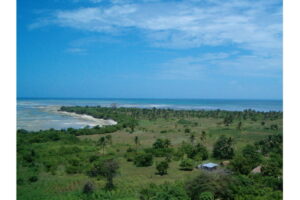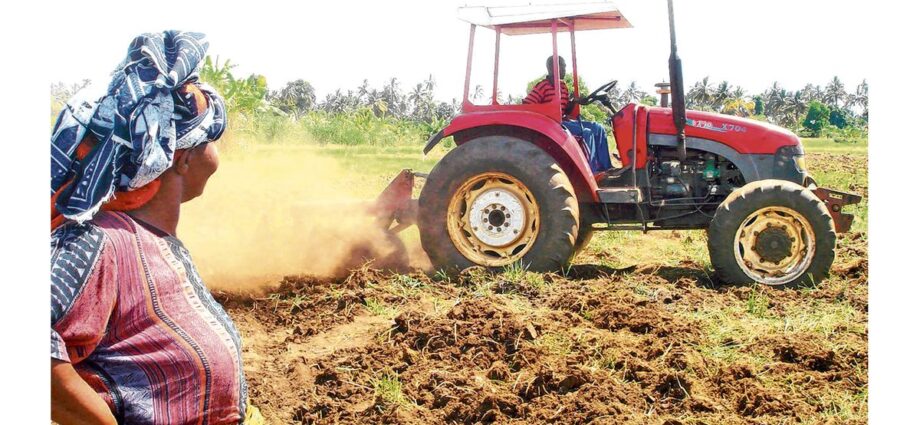Economic gender-based violence entails, among other things, restricting access to and ownership of resources. It also expands to include exclusion in decision making regarding the use and control of those resources, particularly land and finances. This has resulted in women’s low level of independence; the– majority of them are abused or remain in abusive relationships due to limited access to productive resources, particularly land, property, and finance.
Growing up as a young woman in Isakamawe village, Misungwi district, Mwanza region, these statements kept ringing in my ears: “I have nowhere to go with my kids because I have no means to support them”; “I can’t leave because I acquired this house with my husband, and even though my name is not on the title, there is no way I can lodge a claim and succeed”; “I can’t report him because he provides for me and the kids;
To date, these are among the justifications for women tolerating violence that has led to disability and sometimes death. The recent Tanzania Gender Assessment Report 2022 shows that 40% of all women aged 15–49 have experienced physical violence. Spousal violence appears to be more prevalent in rural areas, accounting for 52%, while it averages 45% in urban areas.
However, evidence shows that women with secure land rights are less likely to face gender-based violence compared to those with no land rights.
Around the globe, land is foundational for rural, peri-urban, and urban women’s livelihood, security, and shelter. Without land to build or maintain a home; farm; leverage for economic gain; inherit or bequeath; or make decisions on land use, women’s dignity, prosperity, and security remain compromised.
However, unequal access and distribution of land, particularly for women, continue to persist even in countries with progressive laws and policies that recognize, protect, and strengthen women’s land and property rights, like Tanzania. Few women own land in Tanzania, individually or jointly with spouses, despite the provisions of the Land Act no.4 and Village Land Act no. 5 both of 1999 that guarantee women rights to access, own and control land. These laws are also in line with the provisions of the Constitution of the United Republic of Tanzania on right to property Article 24 (1) and prohibition against discrimination as per Article 13.
Discriminatory socio-cultural norms and practices, combined with inadequate policy and law implementation due to a lack of capacity and resources; a lack of understanding of women’s land rights as stipulated in land-related policy and laws by women themselves and communities – particularly men and traditional leaders who mostly uphold discriminatory norms rather than progressive policies; and a lack of access to legal services are among the key barriers that prevent women from achieving their rights.
These barriers and many others perpetrate economic gender-based violence and undermine gender equality and justice as they bar women from accessing, owning, using, and making decisions over land, hence remaining dependent on their male counterparts. These barriers also compromise women’s economic opportunities, deepen poverty, and lead to physical violence.
Thus, societal and structural transformation interventions and campaigns like “Stand for Her Land” are key to addressing barriers perpetrating economic gender-based violence. In Tanzania, the campaign is collaborating with the government, CSOs, and, private sector to address socio-cultural norms and practices that are restricting women from realizing their land rights. The campaign is also supporting women’s economic empowerment by using land as a critical tool for their livelihood enhancement and prosperity. Legal aid services have also been instrumental in supporting economic gender-based violence victims through advice and representation.
It should be noted that economic gender-based violence is a critical factor that must be considered when determining the degree of development of women and the country at large, as it reflects the respect for human rights of women and girls in comparison to their male counterparts in relation to productive resource access, ownership, and control. Therefore, 16 Days of Activism messaging should also focus on ending economic gender-based violence against women to build an equal and just society.
A key message during the on-going commemoration of “16 Days of Activism” is “Secure land rights for women! A safety net for women against gender-based violence.”
Khadija Mrisho is the Land Tenure Specialist at the Landesa Tanzania Office.
Share this news
This Year’s Most Read News Stories

Tato faults Zanzibar mandatory insurance for arriving visitors
Tato chairman has dismissed the new policy is an unnecessary and duplicative burden on touristsContinue Reading

How new crop insurance will change farmers’ fortunes
Initiative is a shot in the arm for agriculture, which is currently virtually uninsured with just 0.17 percent of all general insurance sales.Continue Reading

Muslims in Pemba conduct special prayer against ZAA decision
ZANZIBAR: More than 200 Muslims in Vitongoji Village, South Pemba Region over the weekend conducted a special prayer to condemn the Zanzibar Airports Authority (ZAA) move to appoint DNATA as the sole ground handler in Terminal III of the International Airport of Zanzibar. Abeid Amani Karume.Continue Reading











